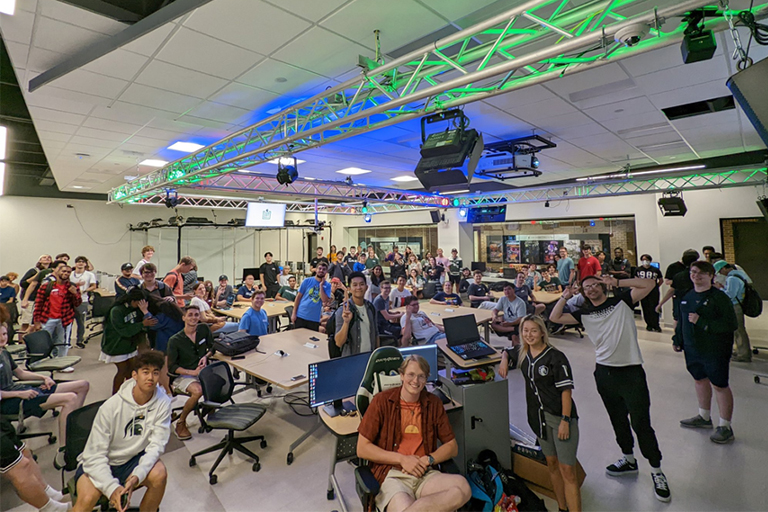When esports arrived on MSU’s campus in 2016, it started with a group of college students that united under one idea: build a larger community rooted in the enjoyment of video games. That community became MSU’s Esports Club Association. Six years later, the ECA has more than 1,500 students and major university support.
Just like millions of fans tune in to watch other collegiate sports, esports draw in comparable viewership to professional sports leagues in the more traditional sense, a trend that has been especially strong since 2020 with the beginning of the COVID-19 pandemic. Amidst worldwide growth and appeal, esports is now being considered by athletic directors nationwide for inclusion in NCAA divisions, and by the International Olympic committee for future inclusion in the Olympics.
In East Lansing, MSU is set to debut its official competitive esports team in the fall of 2023. Earlier this year, the College of Communication Arts and Sciences welcomed the university’s inaugural Director of Esports, Christopher Bilski, with a goal of leveling up MSU’s collegiate esports involvement. MSU’s first dedicated esports space, located in Hubbard Hall, is also on track to open in 2023.
“Esports has exploded in the past few years,” said Bilski. “In Michigan, there are now roughly 35 varsity programs with some offering scholarships up to full rides. That’s just a piece of a national trend that has shown no signs of slowing down. Esports clubs have become some of the largest student organizations across campuses, and at Michigan State, our esports club currently has over 500 active members.”
One of those members, and current club president, is Dylan McCarroll. “For the longest time, collegiate esports has been a grassroots movement, started by esports people who happened to be in college,” McCarroll said. Video games have given McCarroll a chance to connect with new people, and he sees an opportunity to include groups that have been historically pushed out of traditional sports.
“There is a magic of spontaneity and community to esports that doesn’t exist in normal athletics, due to just how accessible video games are to play right now,” said McCarroll.
Bilski agrees, noting that esports can be a powerful tool for students to develop soft skills and find a sense of community. “It allows a space for students to find others who are passionate about the same things you are and can provide a structured space to develop healthy habits around gaming. Academically, esports can enhance what students are already learning in the classroom by providing real-life opportunities to utilize their skills or add to their portfolios.”
This was adapted from a story that ran on the College of Communication Arts and Sciences website.
